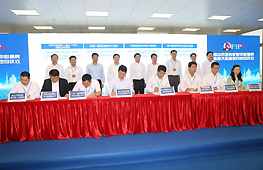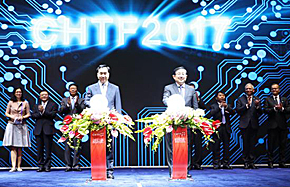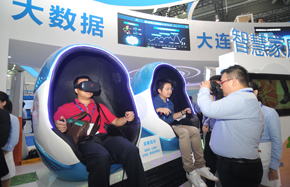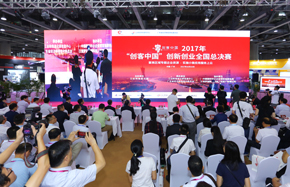Workshop on Innovation and IP Protection held at Tongji University
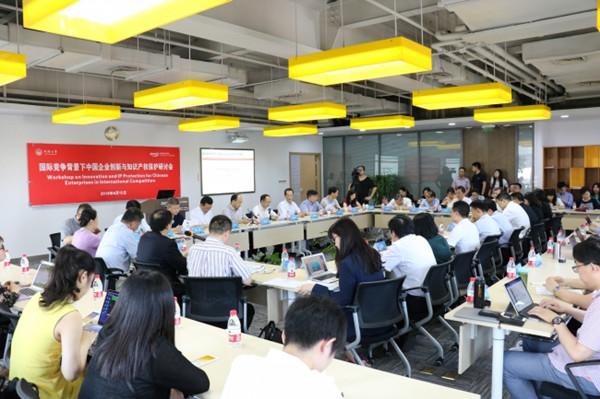 |
|
The Workshop on Innovation and IP Protection for Chinese Enterprises in International Competition was held at Shanghai College of International Intellectual Property (SICIP) of Tongji University, June 15. [Photo/tongji.edu.cn] |
The Workshop on Innovation and IP Protection for Chinese Enterprises in International Competition was held at Shanghai College of International Intellectual Property (SICIP) of Tongji University, on June 15.
Experts working for the Chinese authorities, judicial organs and internationally-oriented enterprises attended the workshop and held an in-depth discussion over three specific sessions titled “Policies Related to Promoting Enterprise Innovation and IP Utilization”, “Judicial Measures for Strengthening IP Protection”, and “IP Legal Compliance Management and Risk Control in International Overseas Development of Innovative Enterprises”.
The workshop was co-hosted by SICIP of Tongji University, the Center for Intellectual Property Study of Fudan University, and Intellectual Property Law Association of Shanghai Law Society.
Lyu Guoqiang, counsel of the World Intellectual Property Organization (WIPO) and director of Shanghai Intellectual Property Society, and Feng Shenhong, vice-secretary of the CPC Committee of Tongji University, each made a keynote address to mark the opening of the workshop.
During the first session, Chang Xinshi, division head of the General Office of China’s Ministry of Science and Technology, delivered a report titled “New Challenges Confronted in China’s Science and Technology Innovation”.
He argued that China is now confronting challenges in its research and development capabilities, as well as in its capacities to formulate standards for industry development.
He expressed his view that Chinese enterprises should create more technology standards and industry rules, and strive to promote these standards and rules to other parts of the world.
Han Xiucheng, director of the Intellectual Property Development and Research Center of State Intellectual Property Office, delivered a speech on creating high-value patents.
He noted that the number of invention patents from China has been increasing in recent years, while the number of PCT overseas patent applications is still relatively low, even compared with other developing countries such as Brazil, Mexico, Malaysia and South Africa.
Chinese companies should aim to develop high-value patents right at the outset, he said.
As a commentator for the first session, Luo Dajin, director of Shanghai Institute for Science said that China’s science and technology sector is transiting from “following” or “keeping up” to “leading”, and accordingly, relevant strategies and tactics need to be adjusted, in order to change from “emphasis on quantity” to “emphasis on quality”.
Song Xiaoting, professor of SICIP of Tongji University, said that trade conflicts, in their essence, are “competitions in science and technology”.
In order to tackle such conflicts, China has worked to overtake others in the race to develop emerging industries. In this regard, IP can be used to unite relevant participants and form a huge scientific innovation community of shared benefits.
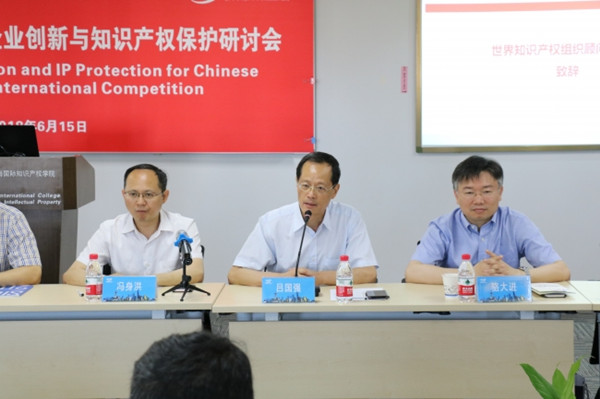 |
|
Lyu Guoqiang, counsel of the World Intellectual Property Organization (WIPO), delivers a speech at the seminar.[Photo/tongji.edu.cn] |
In the second session titled “Judicial Measures for Strengthening IP Protection”, Tang Zhen, deputy presiding judge of Intellectual Property Division of Shanghai High People’s Court made a report titled “Paths for Protecting Trade Secrets of Innovative Enterprises”.
In the report, Judge Tang stated that protection of trade secrets has become increasingly important amid the development of technology and competitions.
Tang offered his suggestions on protecting trade secrets from four perspectives –– guaranteeing facilities, software management, employee management, and administrative rules.
Zhang Feifei, deputy investigator at the Economic Investigation Department of the Ministry of Public Security, made a speech titled “Enforcement Practices of Combating Intellectual Property Crimes”, in which she pointed out that IP-related crimes are increasing and spreading as the economy grows.
During the third session titled “IP Legal Compliance Management and Risk Control in International Overseas Development of Innovative Enterprises”, Ma Zhongfa, professor of the Center for Intellectual Property Study of Fudan University, delivered a report on green development and the international legal system related to technology.
He suggested establishing a technology transfer mechanism under the Belt & Road Initiative –– not only to protect the interests of China’s enterprises, but also to provide the necessary support for countries along the Belt and Road.
Zhang Zhongqing, supervisor of the litigation administration department of Huawei Co, in his speech titled “Intellectual property risks and solutions for enterprises to develop overseas markets”, introduced the features and responsive measures for IP risks from the United States and European countries.
He also pointed out that China has become a major player in the international manufacturing industry.
Xu Ming, associate professor of SICIP of Tongji University, spoke about the “Deferred Prosecution Agreement in the United States”, in which he introduced ZTE’s deferred prosecution agreement with that country’s authorities.









